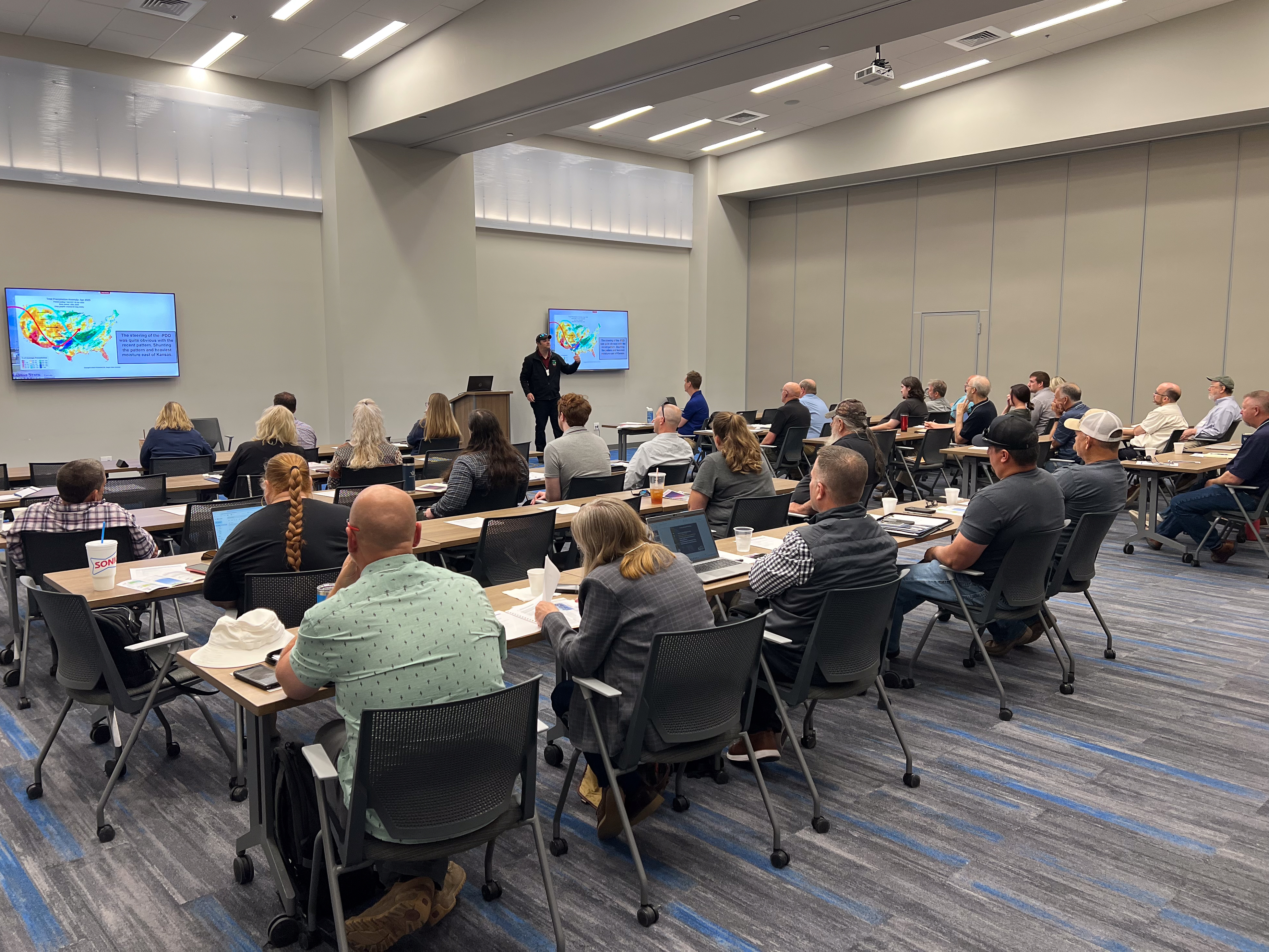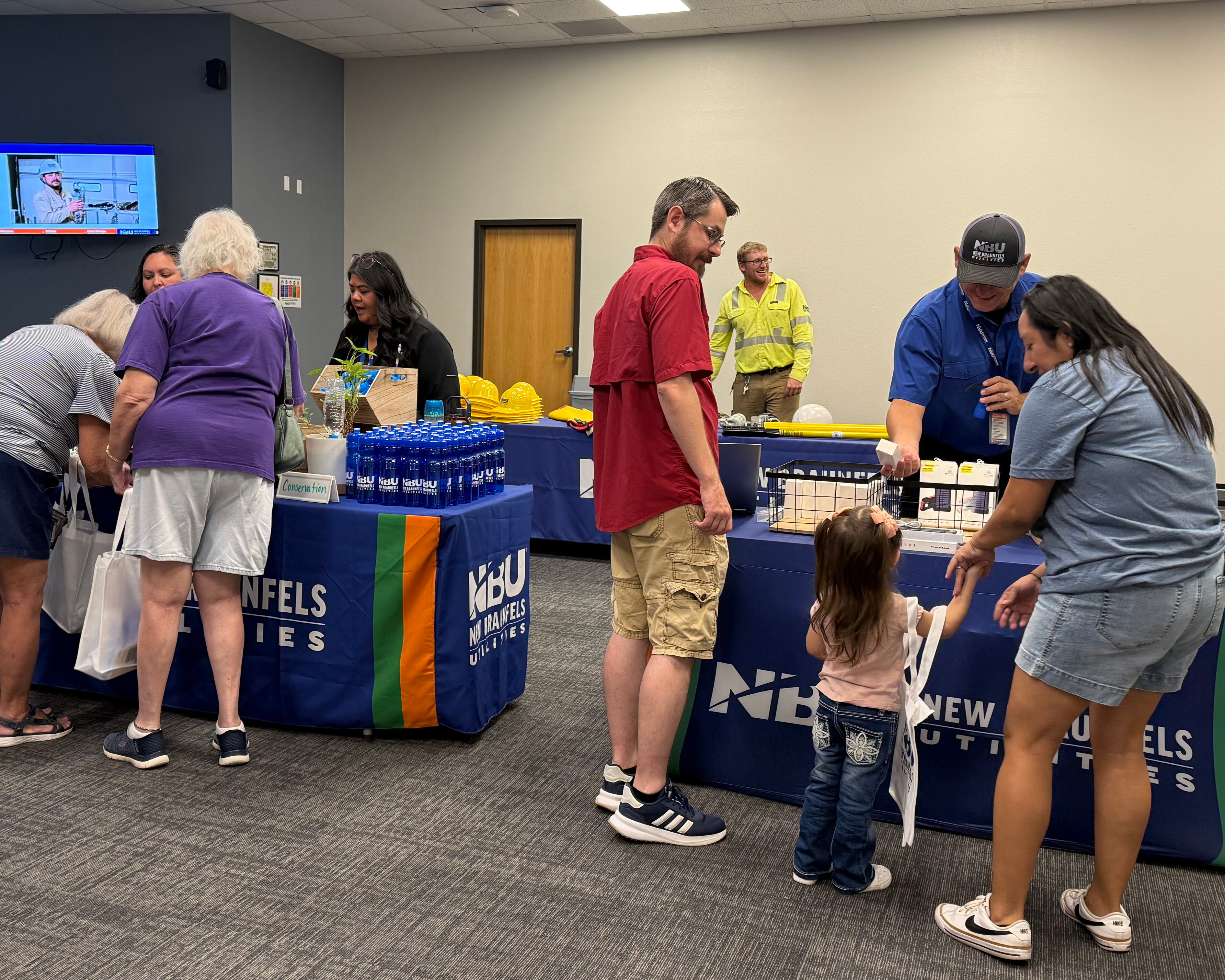Being prepared isn’t just about having the right infrastructure, policies, or procedures in place. It’s ensuring people know those policies and procedures — and each other — to leverage the utility’s and community’s assets effectively in a response.
Utilities and other critical sectors have conducted various exercises at the local, state, and national levels to prepare for emergencies and security incidents. Exercises bring together the various parties involved to work through an emergency scenario or to practice full-scale response procedures in the event of a cyber or physical attack. As the types of threats or emergencies that utilities potentially face broadens, so have the corresponding exercises.
Organizing an exercise can be as simple as gathering a group of representatives from across the community who would be involved in a response and walking through what actions each would take in a given scenario, such as those outlined in APPA’s Tabletop Exercises in a Box or included in the All-Hazards Guidebook.
Exercises can also involve multiple utilities in a specific state or region, like the Safe Haven exercise APPA is holding with various public power utilities this fall, or GridEx, a national exercise focused on cybersecurity of the electric grid.
Motivated to Grow
Often, one of the greatest benefits of participating in these types of events is building relationships.
Brad Mears, executive director of Kansas Municipal Utilities, noted how exercises have increased awareness of response capabilities and how these can be coordinated.
He said the events help participants “understand what people are facing on both sides” as well as how to communicate during incidents to clarify what is needed in a response.

KMU is cohosting a Safe Haven exercise, along with APPA and the Department of Energy, for its members across Kansas in October, and participated in a regional storm response exercise with its members and the Municipal Electric System of Oklahoma in 2024. (Snohomish Public Utility District in Washington will cohost another Safe Haven event in November).
Mears said KMU participates in the exercises APPA hosts for the Public Power Mutual Aid Committee, as well as workshops with state emergency planning agencies and federal entities like the Cybersecurity Infrastructure Security Agency and Argonne National Laboratory.
Tom Dunmore, chief engineer at Vineland Municipal Utilities in southern New Jersey, said that the public power utility regularly participates in a variety of exercises and similar events, some as part of compliance protocols and others on a voluntary basis to support overall preparedness. This has included everything from internal-only environmental protection drills to GridEx.
“We try to stay fairly active as a whole across the utility,” said Dunmore. “It helps to know we’re calling the right person in the moment rather than [cold calling] the organization to find the right person.”
He said those organizations can include anyone from local emergency responders to other city departments and the regional transmission organization.
Mears said KMU holds events in various parts of the state to make it easier for rural and remote members to attend in person, as he said it’s the interactive part of the exercises that has the greatest impact.
“It builds relationships across utilities… it’s a lot easier to help when you know who you’re helping out,” said Mears.
Billy Shearer, safety manager at New Braunfels Utilities in Texas, said that the public power utility focused more on participating in exercises when he came on board six years ago. He said they’ve participated in everything from local tabletop exercises to regional storm response workshops and cyber exercises, including GridEx.
When the exercises have been more locally or regionally focused, other participants have included the fire department, city managers, and the Lower Colorado River Authority, which supplies power to NBU. Shearer said the events have included tabletop exercises on various emergency response scenarios as well as having the fire department practice rescuing dummy utility workers.
Shearer said the tabletop exercises have again ramped up following recent leadership changes across the utility and the city. He said these efforts help individuals across city agencies align on what they need from the utility, and what the utility needs from others.
A recent event brought together local emergency managers to provide input into NBU’s response activities. “They were there to provide input into our injects and explain to us what would be going on from their perspective because we're only a small piece of the city puzzle,” said Shearer.
He said such activities also help recognize what resources various agencies have that could be helpful to a variety of community members, from emergency operations centers to warming centers and water distribution efforts.
Improved Resilience
NBU hosted its first community emergency preparedness event in August with the goal of increasing community awareness. The event was held at NBU’s office and involved the public power utility sharing tools and tips for what they should do during an outage and handing out starter emergency kits.
Julia Haynes, Director of External Relations at NBU, said that while the event happened on the heels of this summer’s tragic flooding in central Texas, event planning started before then, with the impetus being NBU’s commitment to keeping its community informed.
“Recent events were an eye opener for people,” said Shearer. For him, emergency preparedness is “not just the utility... Be proactive and take the time to tell your family how to respond to natural disasters as well.”
Attendees seemed engaged in the event and Haynes said they left feeling more confident and knowledgeable about the services available in emergencies. Haynes said the utility plans to host such events again in the future and will invite more community partners to share tips from their perspectives and might also consider going to locations more convenient for different parts of the community.

“Providing resilient services to the community is a core responsibility of the utility. Empowering our customers with knowledge is essential, and it’s something that we take seriously and will continue to prioritize,” said Haynes.
Shearer noted appreciation for the public service mindset among colleagues at the community-owned utility, seeing willingness to offer help however they can. “It gives you a comfortable feeling to know that we’re taking the extra steps to support locals in any kind of event.”
“Being ready to support our communities is our number one goal,” said Shearer. He sees how holding the exercises has helped NBU grow and streamline its processes before a real event.
Dunmore agreed. “We’re really looking at resiliency… which for us is how fast can we respond to an issue, not necessarily how robust the system is… What we’re trying to focus on is how do we respond to the things we can’t foresee in a more controlled, foreseeable way.”
Learning at Every Opportunity
When Vineland first considered participating in GridEx, Dunmore said it felt a bit overwhelming for the utility, which serves about 25,000 customers. In corresponding with the operators of the exercise, he learned that the utility could participate as an observer, which he said was still a helpful learning experience.
“Once we saw how the drill went, how the staffing and support worked, that really upped our level of exercise expectations and gave us the ability to better develop and manage our own internal drills,” he said.
Most importantly, Dunmore said it’s critical to make sure someone is translating the lessons from the exercise into updated protocols and procedures.
“Because we have a central group that has a role in those exercises, we can share the lessons learned quickly,” said Dunmore. “That has been invaluable to us, because we're no longer having someone else learn the mistakes that we've already made.”
Another big takeaway is from looking at when the simulated response breaks down. Scenarios are often designed to keep escalating until they reach a breaking point so participants can learn where vulnerabilities lie. “Giving ourselves time and space to fail,” added Dunmore. “We’re going to make mistakes, we’re going to fail… that allows us to write process and procedures to help in the future.”
Dunmore noted that Vineland Municipal Utilities has been placing more emphasis in recent years on making proactive changes based on exercise findings. In the past, he said exercises were often approached as a regulatory requirement rather than with a focus on learning.
Vineland has had to deal with a variety of weather and natural events, from flash flooding to wildfires. Dunmore said a turning point in the utility’s approach to preparedness occurred after a derecho came through its service territory in the early 2000s without warning.
“We can't predict the weather, but we can prepare to respond to it,” said Dunmore. “We have these processes in place, we’ve trained our personnel… we should get it right, and we know we won’t every time. We want to know where we are weak because we want to be stronger.”
Building Rapport
From KMU’s perspective, hosting exercises and workshops is an important service it provides to build resilience among its members and awareness of the resources and support available to them.
“An emergency response plan is not something to set on a shelf. You have to review it periodically to keep it current and updated,” said Mears. In the exercises, members can review their plans and get pointers and ideas from other participants.
Dunmore said his team meets in advance of exercises to discuss what they expect to get out of a given exercise. While he said exercises don’t always unfold as expected, having a defined common goal helps frame the debrief to be more teamwork-oriented about what processes might have failed, rather than finger pointing at which specific participants did or didn’t do something correctly.
Dunmore said Vineland is looking to include more city divisions in its exercises in the coming years to expand the level of input to improve emergency response.
“Having a positive emergency preparedness posture is important,” said Shearer. “Take the time to communicate and don't wait until it happens. You want to be on your toes rather than your heels.”
Part of that preparedness is also about learning from other utilities.
“For those that have had issues come up in the past, reach out to them, see how they fixed it. Don't sit there and try to reinvent the wheel,“ advised Shearer.
Exercise participants, said Shearer, should “be flexible, be honest, and just be ready to work as a team.”

